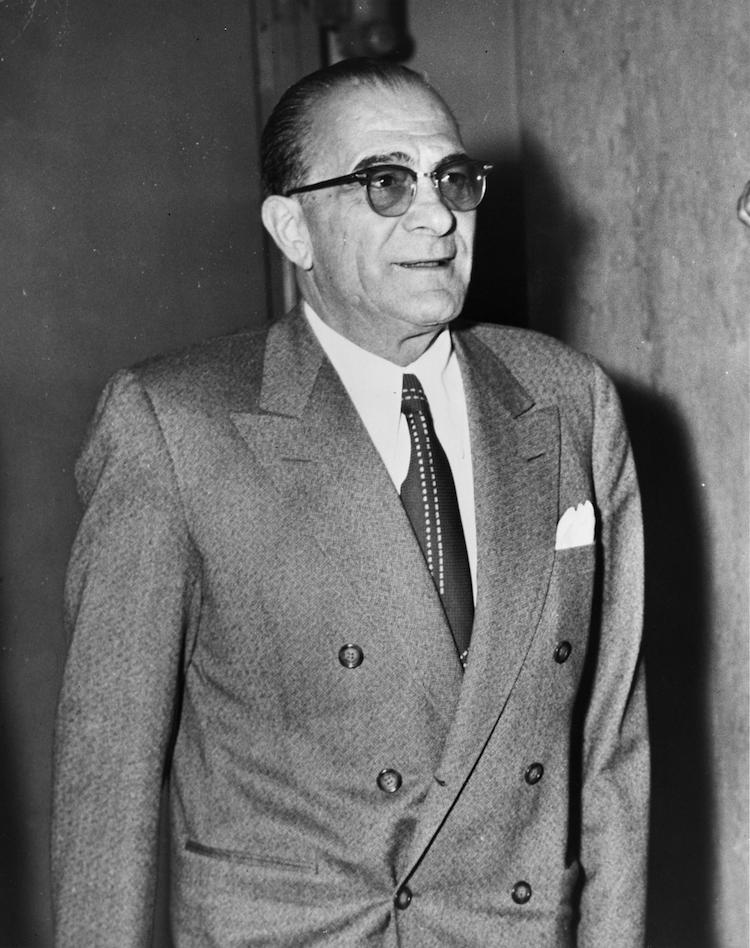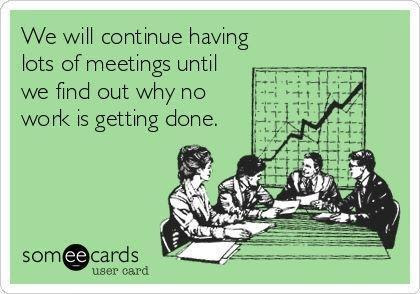270 Refusing Help
Podcast: Play in new window | Download ()
Subscribe: Apple Podcasts | Spotify | Email | RSS | More

It was years ago when I was first called, “Coach.” It was a group of kids playing hockey. I’ve had 6 year olds call me coach, and college guys do the same. It’s a pretty good feeling actually. Knowing that you’re helping players learn, develop and compete. But it’s really cool to help players improve and bond together as a group. Nothing beats the feeling of being part of a great team.
A few years ago when I began to morph my career away from “roll-up-your-sleeves-get-your-hands-dirty” consulting to more of a boutique coach specializing in helping executives become more effective leaders…I wasn’t too sure of the labels. I was a bit jaded with all the “life coaching” services by every Tom, Dick and Harry. The notion that anybody with a business card could coach merely based on their ability to market themselves and be paid repulsed me somewhat. It still does. But fancy certifications by outfits whose main goal is to collect more revenue repulsed me even more.
Besides, my work violated every rule of proper business model creation. I was – and still am – a one-man-band. That’s by design. For decades I’ve run larger operations with employees. I wanted to rely solely on myself. My business isn’t scaleable. I serve people in the most individualized, personalized way possible. I dive into specific issues, challenges and constraints in work, people’s performance, organizational cultures and teams. It’s just the opposite of a one-size-fits-all approach to coaching. It’s the only way I know how to roll. And I believe in it. Strongly.
People are unique. Their circumstances are, too. Along with their work, culture and teams. Then there’s that experience and skill element. The coaching given to a beginner in golf or any other endeavor should be very different than coaching given to an elite player. I didn’t coach 6-year-olds the same way I coached college guys. Different skill set. Different experience. Different understanding. Different coaching required.
Coaching provides one enormous opportunity for my clients – perspective. It’s never about me imposing my will on anybody. I do hope to influence people and persuade them. Mostly of what’s possible. The goal is always the same.
Higher Human Performance
I want to help people elevate their performance and the performance within their organization or their team. These are leaders. They are executives.
It’s worth noting that the people who benefit most from coaching are high achievers or those desirous of becoming high achievers. They also have one other important ingredient – willingness. A high degree of willingness!
Once in awhile I encounter an executive or leader whose the subject of my coaching. That is, my services have been employed by a superior, a sponsor. Usually it’s provided as a benefit, a professional and personal development investment the organization wants to make in this person. In spite of that motivation, I can sometimes run into the person who resists my services. They simply refuse help.
When it first happened some years ago I took it personally, but experience has taught me that such people are resistant to help from almost everybody. I won’t say they resist everybody because I like to think we’ve all got at least one person with whom we could let down our guard and accept some counsel. Maybe not though.
Knowing why I’ve been commissioned, and knowing how badly the sponsor – usually the boss – wants me to serve the reluctant executive, it’s frustrating when I press and press, only to be insincerely patronized by the client. But there’s another aspect of my business model that isn’t conducive for empire building – I’m more interested in results than I am in embedding myself as a paid coach. I’m one of those guys who think chiropractors serve a wonderful slot in health care. I’ve been to them before. However, I’m also opposed to those chiropractors who are mostly interested in keeping you coming back week after week for the rest of your life. If I were a chiropractor I’d be the guy trying to help you as quickly as possible so you could stop seeing me. I know the business stupidity of that business model, but I’m at a phase in my life where I can afford to harness the power of a stupid business model because it’s just how I prefer to roll. I wouldn’t likely coach any client to follow suit. 😉
I want to make a difference for my clients. Whenever I run into a reluctant client who behaves like the job candidate who answers every question with a patented “good answer” I grow increasingly frustrated. “Tell me about one of your biggest weaknesses,” asks the job interview. The job candidate says, “I love people too much.” Yeah, I sometimes get that from people. And 100% of the time they’re the people who refuse my help. They work hard to fool me and put on a front that I know isn’t true. Sometimes I can break through, but most of the time they maintain their guard as I walk out the door for the final time.
I’ve often thought about why people behave like that, but in every single case I report to the boss that I was unable to help the person because they refused to come clean and be honest. I’ve never had a boss be surprised. Turns out that in every case the boss commissioned me because: a) they wanted to make an investment in the person and b) they were experiencing some of the problems I encountered. They were hoping I might be able to affect some improvement. Sadly, I could have – if only the person would have been able to accept help.
Refusing help isn’t limited to professionals like me though. It’s a much deeper problem for some. They refuse help from their boss, teammates and peers. Well, it doesn’t look as overt as that. It’s more passive.
“No, I’m good. Thanks!”
“Things are great.”
“No. No problems here.”
Every refuser I’ve encounter behaves in a similar fashion. They work hard to appear friendly and easy going. Their power weapon is deception through charm. They want others to think they’re unflappable, capable of handling any difficulty that might come their way. Unlike you and me, they’ve never encountered a challenge that left them wondering, “What do I do now?” Or so they’d have you think.
I’m sure some social scientist or psychologist would have a field day trying to dissect such characters, but that’s not my job (or my qualifications). I’m just trying to help people elevate their own performance, and the performance of their organization. An impossible task when people refuse to acknowledge any room for improvement.
One of the first times I encountered this was more years ago than I can remember. I was helping a senior executive, an older gentleman, develop a younger executive. He wanted to groom this young hot shot for some added responsibility. Unfortunately, he encountered some push back from the younger executive. He was finding the younger leader disagreeable with his ideas. “It’s as though he thinks he’s got to stand toe-to-toe with me,” said the senior leader. “I’m beginning to wonder if I’ve made a poor choice in putting so much confidence in him.”
I was between their ages. The senior executive hoped my experience, my demeanor (including my candor) and my age would work to benefit his young protege. I dug in talking with them together, then talking with them privately. I spent as much time as possible with the younger leader trying to figure out why he might behaving this way — and trying to figure out a way to help him.
It was clear from the outset that he didn’t want me to see any weakness or challenge. He had EVERYTHING under control. He had all the best ideas. He knew better than his team, his boss and he certainly knew better than me. Big rooms. Small rooms. It didn’t matter. He was determined to appear to be the smartest man in all rooms he entered.
I listened. I asked questions. I listened some more. It wasn’t hard. He was a talker – another trait I’ve seen in common with people who refuse help. They tend to fill silence, or they tend to create as much silence as possible. I’ve not found them to be middle-of-the-road when it comes to talking or not talking. They either do lots of it, or they don’t do much of it at all.
I told him how much confidence his boss had in him, explaining that my presence proved it. “I’m here to serve you,” I told him. He gave what he thought would be all the right answers. “Great. I’ll put you to work,” he told me. He’d launch into some specific work task as though I would be his personal assistant. I’d stop him and say, “I’m not here to do your work for you, or to do it with you. I’m here to help you with much bigger issues.” That’s when the “Who’s On First?” Abbott and Costello routine would begin. Lots of circle talking would drone on and I’d leave knowing I wasn’t breaking through.
Within months of my effort – my failed effort – he was gone, ditched by the senior executive who saw so much potential, but couldn’t get past the arrogance of a brash young leader with a very hard head. I saw what he saw. The young man had extraordinary potential. It would have been easier if he’d been completely incompetent.
Through the years I’ve seen that scenario repeated more often than I’d like. Nothing frustrates me more professionally than trying to help a person who would benefit from it – a person with skills, experience and know-how. Sometimes I encounter a person who is just over their head. Those people don’t frustrate me. They’re often just doing the best they can even though their best isn’t good enough. Those situations just need to play out sooner than later. But it’s those folks who could do so much better that make me sad. Like a drowning person who refuses a life-saver…you just want to coerce them to grab on and accept your help. But you’re helpless to help. And it sucks!
When Jack Welch was leading GE I got an invitation to attend a small gathering of people at a “meet and greet.” As Welch made his way around the room I knew precisely what I wanted to ask.
“How did a guy like you get to the top of GE?”
Welch quickly replied that he had a terrific boss who protected him and fostered his best.
And there it is – Welch accepted help. Jack Welch accepted help.
Sometimes I can tell the person refusing my help that story and they surrender, letting down their guard so I can begin to serve them. Most times they don’t. Most times they’re so dug in and committed to their posture that they just can’t seem to find a way to be human. Joining the rest of us is just not easy for them. No matter what help we may have needed – or may still need. No matter that Jack Welch needed and accepted help…they just can’t be like us. Mortal. Vulnerable.
It’s a mistake. To avoid vulnerability that will enable us to accept help. It’s a mistake for us to avoid seeking help.
It’s also the tell-tale sign of a low performer. Who cares if it’s insecurity, ego, pride or anything else? I don’t much care. I used to, but I’ve learned not to fret so much about it because the people who refuse help are mostly (not always and not entirely) not the people most capable of high performance. That’s because the highest performers are the most willing to do what must be done to elevate their performance. That’s the biggest ingredient of success – willingness.
I’m not diminishing skills and talents. But without a high degree of willingness those are just potential. I don’t know how to win with potential. I don’t know how to achieve anything with potential. Potential is just hope and hope won’t win anything. Hope needs action to become reality.
Just today I was hearing about a 2nd round MLB draft pick for the Texas Rangers who signed a $2M signing bonus. He’s a high school kid from North Carolina. Then there’s a 3rd round pick they made for a college kid from Duke. He got a $2M signing bonus, too. Four million dollars paid to two players who have potential, but have yet to play a single inning of major league ball. Will they pan out? I don’t know. The Texas Rangers don’t either. Not for sure. They’ve got good intel on these guys. They’re making a calculated investment, but right now they’re just paying for the potential of these two players. Time will tell if that potential is realized.
If both players put in the work, stay healthy and perform up to their ability — the investment will pay off. But if they party like foolish frat brats and aren’t willing to do what’s required to succeed at the major league level…they’ll bust.
You’re not likely going to get a $2M bonus based on potential. Professional sports and entertainment are fantastical. The rest of us live in the real world where the value proposition is very different. You were hired based on what you could do – or what your employer was led to believe you could do. You were likely promoted based on what you had done and what was expected you would do based on historical performances. Well, okay. That doesn’t sound unlike MLB…except for the $2M signing bonus part. 😉
You. MLB players. Entertainers. That willingness is still the common denominator to high achievement. Accepting or asking for help is another ingredient necessary for high performance. There are no self-made men or women. Everybody owes somebody for helping them along the way. Parents, teachers, coaches, trainers, advisors, managers, attorneys, accountants, trusted friends.
So what does all this mean? It means if you want to commit yourself to mediocrity or failure, refuse help. Go it alone. See how far you get. Go ahead. Try it. The high achievers will benefit by you not being part of the competition. You’ll just be one less person standing in their way of reaching their dreams.
So keep that scowl on your face. Embrace your misery as the smartest man in the room who never reached the heights of higher human performance.

Subscribe to the podcast
 To subscribe, please use the links below:
To subscribe, please use the links below:
- Click Here to Subscribe via iTunes
- Click Here to Subscribe via RSS (non-iTunes feed)
- Click Here to Subscribe via Stitcher
If you have a chance, please leave me an honest rating and review on iTunes by clicking Review on iTunes. It’ll help the show rank better in iTunes.
Thank you!



 You don’t want to believe that, but it’s true. Vito was effective. Mostly because you didn’t mess with him and live. When murder and violence are workable options it’s difficult to foil effectiveness.
You don’t want to believe that, but it’s true. Vito was effective. Mostly because you didn’t mess with him and live. When murder and violence are workable options it’s difficult to foil effectiveness. Back in 1990 I was browsing through a bookstore – my favorite pass-time – and noticed this book, Leadership Secrets Of Attila The Hun. It wasn’t the first book of that sort. Won’t be the last either. People will read leadership books about most anybody or any strategy because many of us are constantly searching for better methods.
Back in 1990 I was browsing through a bookstore – my favorite pass-time – and noticed this book, Leadership Secrets Of Attila The Hun. It wasn’t the first book of that sort. Won’t be the last either. People will read leadership books about most anybody or any strategy because many of us are constantly searching for better methods.



 Knowledge makes everything simpler. That doesn’t mean it makes things easy.
Knowledge makes everything simpler. That doesn’t mean it makes things easy.





